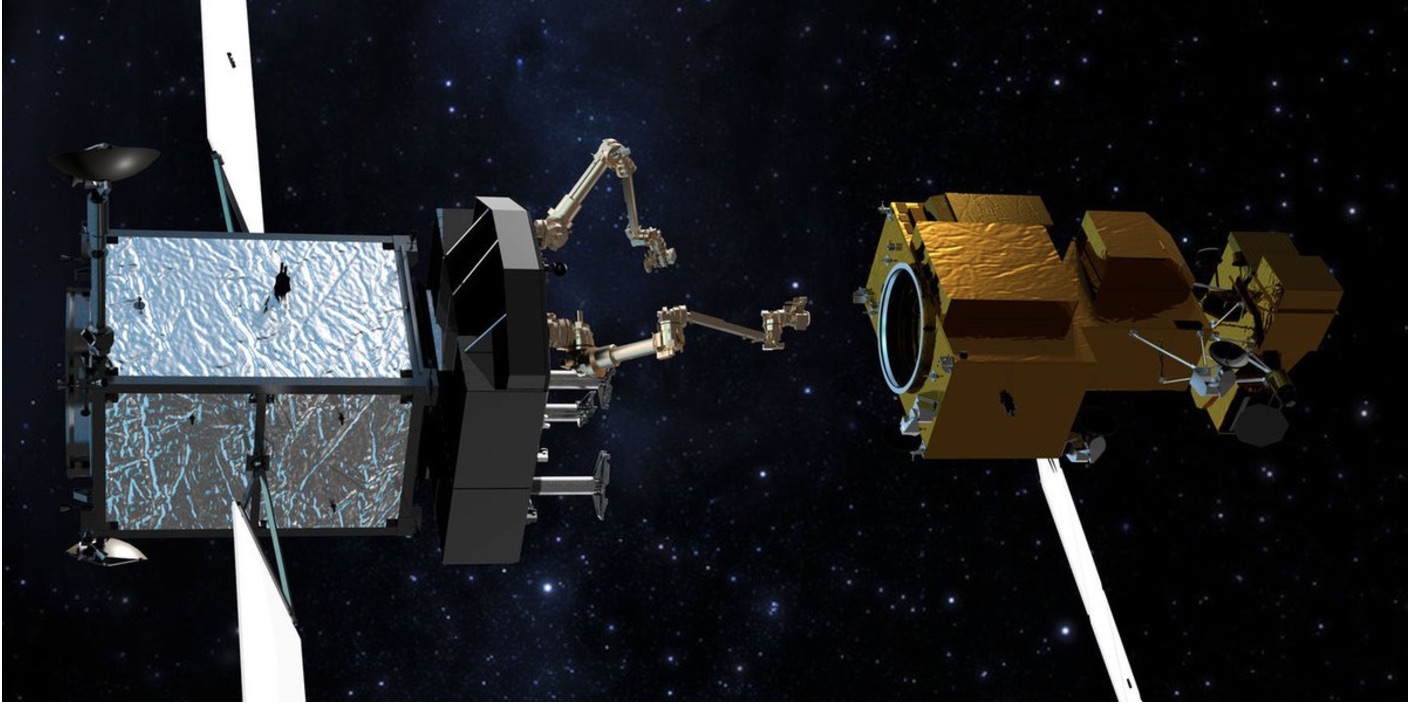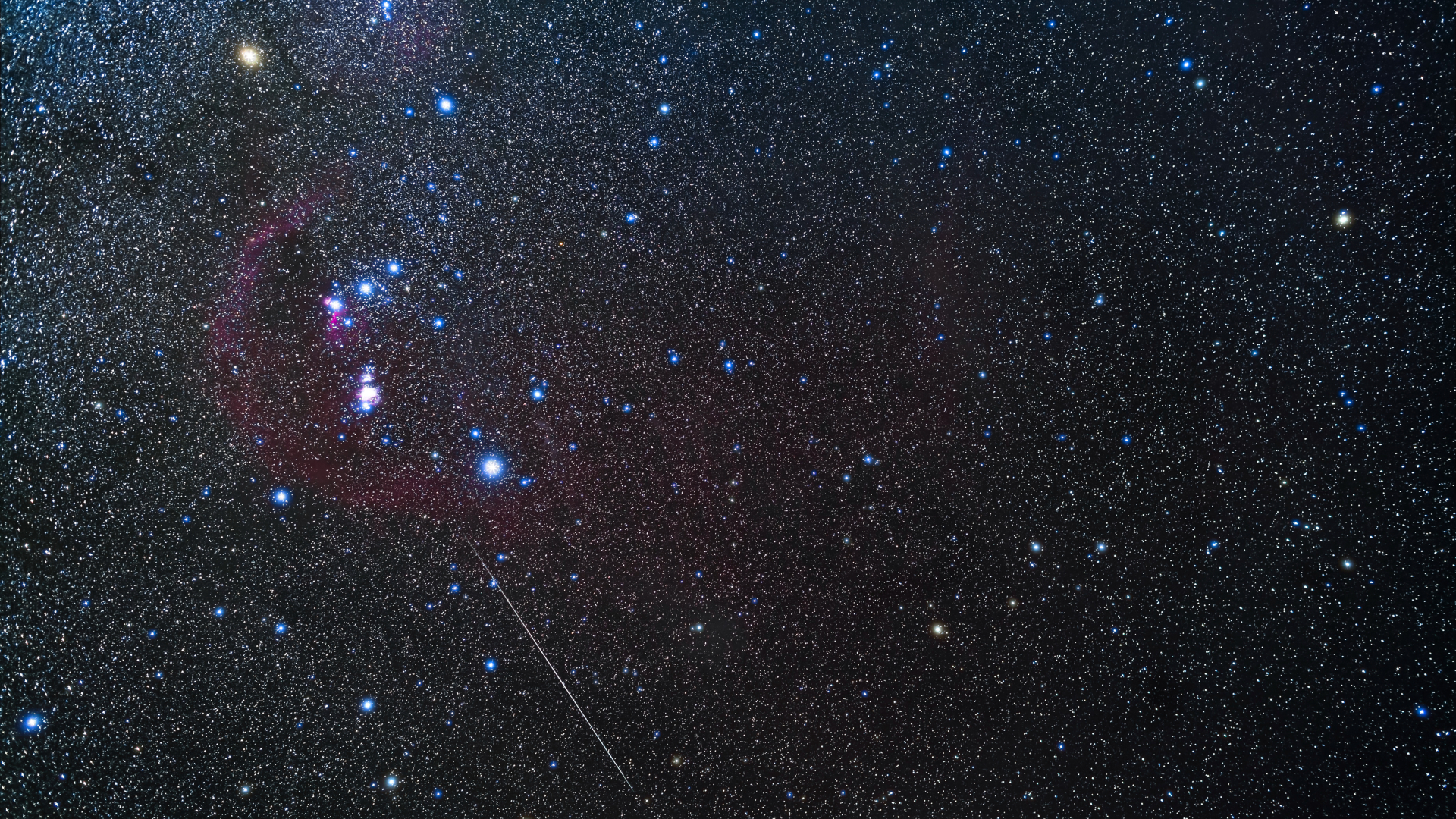Private Space Company Sues to Stop DARPA's Robotic Satellite Serviceman

Breaking space news, the latest updates on rocket launches, skywatching events and more!
You are now subscribed
Your newsletter sign-up was successful
Want to add more newsletters?

Delivered daily
Daily Newsletter
Breaking space news, the latest updates on rocket launches, skywatching events and more!

Once a month
Watch This Space
Sign up to our monthly entertainment newsletter to keep up with all our coverage of the latest sci-fi and space movies, tv shows, games and books.

Once a week
Night Sky This Week
Discover this week's must-see night sky events, moon phases, and stunning astrophotos. Sign up for our skywatching newsletter and explore the universe with us!

Twice a month
Strange New Words
Space.com's Sci-Fi Reader's Club. Read a sci-fi short story every month and join a virtual community of fellow science fiction fans!
The Defense Advanced Research Projects Agency (DARPA) this week chose a commercial partner to build a satellite that can make service calls to other spacecraft, sparking a lawsuit from a rival firm claiming it has a similar program in the works.
DARPA's Robotic Servicing of Geosynchronous Satellites program, known as RSGS, is one of three development efforts intended to kick-start a new industry for the repair and servicing of satellites in orbit.
RSGS focuses on satellites in geosynchronous orbits, or GEO, located some 22,300 miles above Earth. At that altitude, satellites closely match Earth's rotational speed so they remain in a relatively fixed position, an ideal perch for providing communications, meteorology other services.
Once a satellite is in orbit, however, technical issues can be difficult to diagnose, much less repair, sometimes forcing multimillion-dollar spacecraft to be abandoned. Satellites also can become obsolete and even the most productive birds will eventually run out of fuel to maneuver.
"With no prospects for assistance once in orbit, satellites destined for GEO today are loaded with backup systems and as much fuel as can be accommodated, adding to their complexity, weight and cost. But what if help was just a service call away?" RSGS program manager Gordon Roesler wrote in a column on DARPA's website.
Toward that end, DARPA on Thursday selected California-based Space Systems Loral to be its commercial partner for RSGS, with the goal of building a spacecraft to inspect, capture, reposition, repair and upgrade satellites in geosynchronous orbits. SSL will add refueling capabilities as well.
RELATED: Orbiting 'Rest Stops' to Repair Crumbling Satellites?
Breaking space news, the latest updates on rocket launches, skywatching events and more!
After a demonstration for DARPA, which develops technologies of interest to the U.S. military, SSL intends to sell RSGS services to commercial and government satellite operators.
The plan irks SSL rival Orbital ATK, which last year unrolled what it says is a similar satellite servicing business. The company is developing the first of a planned fleet of robotic service satellites it calls Mission Extension Vehicles and signed up Intelsat as its first customer.
Unlike the RSGS spacecraft, which visits a satellite and moves on, the MEV stays attached to a host satellite, serving as a replacement propulsion system.
"What DARPA wants to do… is produce a long term architecture that is highly sophisticated, capable of doing many, many different things anywhere in the GEO belt at any time, that isn't restricted by being attached to one particular vehicle… and that you're able to bring supplies up to. That's a very different program than what a MEV does today," Steve Oldham, SSL senior vice president, told Seeker.
"I personally think there's a market for MEV and Orbital is demonstrating that," he added.
The Orbital lawsuit, filed on Tuesday in advance of DARPA's official selection of SSL as its partner, asks the U.S. District Court for the Eastern District of Virginia to stop the RSGS program on grounds that it violates provisions of the 2010 U.S. National Space Policy. In part, that policy requires that the government not build or buy systems that "preclude, discourage or compete with commercial systems."
RELATED: NASA Grooming Satellite Repair-Bots
Orbital specifically objects to DARPA's plan to let SSL take over the RSGS satellite after a nine-month demonstration mission.
"DARPA's vision is unabashedly unfair and anti-competitive," the lawsuit states.
Oldham said his company is making a "substantial" investment in the RSGS program and that DARPA deliberately chose a public-private financing arrangement to ensure that the services, which are needed for military and national security satellites, would be available far into the future.
"We will promote and sustain this business long term to the benefit of both commercial and government customers," Oldham said. "Orbital had every opportunity to do the same."
SSL in December won a NASA contract for a third satellite-servicing program called Restore-L. That mission, slated to launch in 2020, will demonstrate satellite refueling in low-Earth orbit using a Landsat remote sensing satellite.
WATCH VIDEO: How the Stage was Set for the Satellite Race
Originally published on Seeker.

Irene Klotz is a founding member and long-time contributor to Space.com. She concurrently spent 25 years as a wire service reporter and freelance writer, specializing in space exploration, planetary science, astronomy and the search for life beyond Earth. A graduate of Northwestern University, Irene currently serves as Space Editor for Aviation Week & Space Technology.
